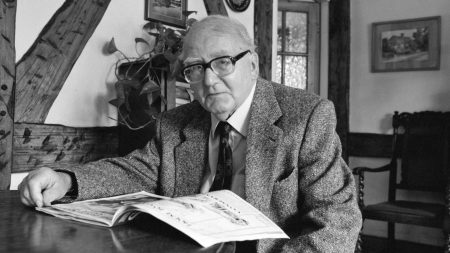The idyllic tranquility of Huntingfield, a small village nestled in the English countryside, is under threat. Residents are up in arms over plans by Blyth Barn, a high-end retreat popular with celebrities such as Jack Whitehall and Sandi Toksvig, to secure a 24-hour alcohol license. This seemingly innocuous application has ignited a firestorm of controversy, pitting the wealthy owners of the luxurious estate against the villagers who cherish their peaceful way of life. The heart of the dispute lies in the potential disruption that a 24-hour entertainment venue could bring to a village of just 150 inhabitants. Locals fear the escalation of noise levels, increased traffic congestion, and the general disturbance caused by late-night revelry, transforming their quiet haven into a hub of activity incompatible with their rural existence.
Blyth Barn, part of the exclusive Wilderness Reserve owned by billionaire Jon Hunt, founder of Foxtons estate agency, offers an opulent escape for its affluent clientele. With a reported nightly rate of £30,000, the property boasts a swimming pool, hot tub, sauna, gym, and a dedicated party room, catering to up to 288 guests – almost double the village’s population. Residents argue that this capacity, combined with the proposed 24-hour license allowing alcohol service until 5 am, will inevitably transform the character of their village. They envision their narrow lanes choked with vehicles, the nighttime silence shattered by music and boisterous celebrations, and the overall atmosphere shifting from one of rural calm to that of a bustling entertainment complex. They fear losing the very essence of what makes Huntingfield a desirable place to live.
The stark contrast between the lavish lifestyle offered by Blyth Barn and the modest existence of the villagers underscores the core of the conflict. Residents feel their concerns are being dismissed in favor of the economic interests of the luxury retreat. The proposed transformation of Blyth Barn from a tranquil getaway into what one resident described as an “all-singing, all-dancing entertainment centre” represents a fundamental shift in the village’s identity, one that they are determined to resist. The Huntingfield Parish Council has formally objected to the license application, echoing the residents’ concerns and predicting “chaos in the village centre.” This unified front against the proposed changes highlights the depth of feeling within the community and their resolve to protect their way of life.
The legal battleground for this dispute rests on the Licensing Act 2003, which empowers residents to object to premises licenses based on four key grounds: prevention of crime and disorder, ensuring public safety, preventing public nuisance, and protecting children from harm. Residents are utilizing this legal framework to voice their objections, focusing on the potential for increased noise, traffic, and general disruption that a 24-hour license could bring. Their argument centers on the potential for the Blyth Barn operation to constitute a public nuisance, significantly impacting their quality of life and contravening the peaceful character of their village.
The case highlights the inherent tension between development and preservation, between economic interests and the desire to maintain the unique character of a community. The residents of Huntingfield are not opposed to the presence of Blyth Barn itself, but rather the extent to which its operations might encroach upon their peaceful existence. They argue that the proposed 24-hour license represents an excessive expansion that threatens to overwhelm their small village. The dispute compels a consideration of the delicate balance between economic growth and the preservation of community values, raising questions about the extent to which rural communities should be expected to accommodate the demands of high-end tourism.
The future of Huntingfield hangs in the balance as the licensing application awaits a decision. The outcome will determine not only the operating hours of Blyth Barn but also the very character of the village itself. Will the pursuit of luxury and entertainment prevail, or will the residents succeed in safeguarding the tranquility they cherish? The conflict serves as a microcosm of the broader challenges faced by rural communities across the country navigating the complexities of development, preservation, and the sometimes conflicting interests of different stakeholders. The residents of Huntingfield are fighting not just for their quiet nights, but for the very soul of their village.











